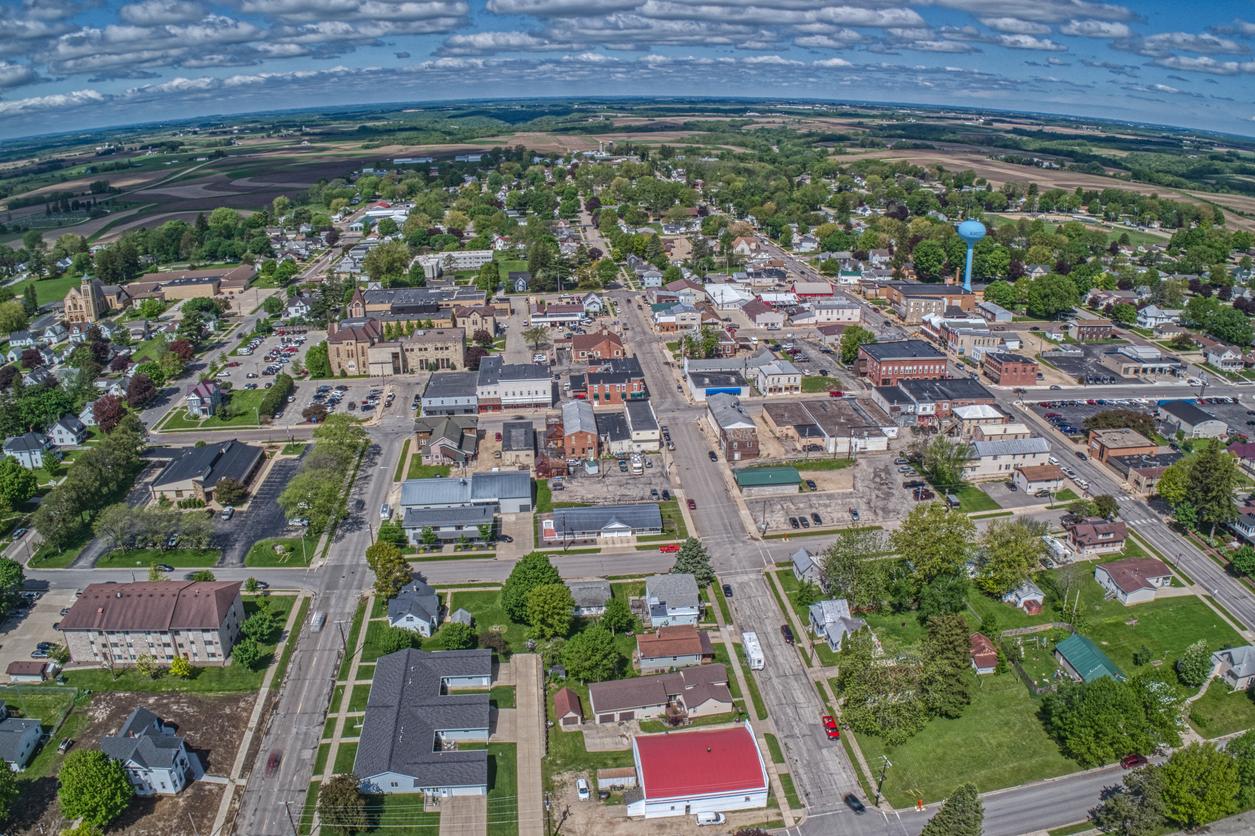该内容传达一般信息. 不要用它来代替法律建议. 引用的任何司法部长意见都可以从联盟的研究人员那里获得.
土地使用条例的基础
明尼苏达州城市土地使用条例的法律基础是1965年的《澳门网络娱乐游戏平台》. (明尼苏达州. 统计. §§ 462.357 – .365). 它的目的是向市政当局提供必要的权力, 和一个统一的程序, 进行和执行市政规划.
立法机关不时修订该法案. City leaders should make sure their zoning and subdivision ordinances are consistent with the Municipal Planning Act and other state and federal laws. 他们还应确保他们的条例符合:
- 法院判决.
- 工作人员解释.
- 不成文的城市政策(做法).
- 全面的计划.
- 其他社区目标.
就可能需要的任何更改咨询城市律师. This discussion will outline a few common areas to look out for when it comes to the city’s land use ordinances.
时间限制
明尼苏达州有一个"自动批准"法规,通常被称为" 60天规则" (明尼苏达州. 统计. § 15.99). 它说,一个城市必须在60天内批准或拒绝与分区有关的书面请求, 或者被认为是批准的. 市议会必须在这60天内做出最终决定. An advisory or appealable decision made by a planning commission or other body does not qualify as a final decision.
Some city zoning ordinances may have built-in time limits for acting on requests that exceed the timeline permitted by the 60-day rule. Timelines should either not be included in land use ordinances or should conform with the 60-day rule.
投票的阈值
只有一个例外, 州法律只要求议会的简单多数通过或修改分区条例.
The exception is a change in the zoning classification of a district from residential to either commercial or industrial. 这一行动需要理事会三分之二的投票(明尼苏达州. 统计. § 462.357年,再分. 2).
Prior laws called for a supermajority (two-thirds) vote of the council to adopt or amend a zoning ordinance. Cities should remove any outdated supermajority requirements from their land use ordinance provisions.
土地使用费
立法机关偶尔会修改《澳门网络娱乐游戏平台》的土地使用费规定. 各城市应确保其土地使用费规定和做法符合现行国家标准. 根据现行法律:
- 城市可以规定足以支付审查费用的费用, 调查, 管理土地使用申请.
- The fees must be fair, reasonable, proportionate, and have a nexus to the actual cost of the service.
- 土地使用费一般须由条例( 统计. § 462.353年,再分. 4).
Cities that collect land use fees must adopt management and accounting procedures to ensure fees are maintained and used only for the purpose for which they are collected.
州法律对所谓的公园奉献费也有要求. 在其他要求中,公园开园费必须放在一个特别基金中. 基金只可用于购置或改善公园及康乐设施. 它不能用于它们正在进行的操作或维护. (明尼苏达州. 统计. § 462.358年,再分. 2b).
不符合
不符合 are uses, structures, or lots that do not comply with the current zoning ordinance. Legal nonconformities are those that were legal when the zoning ordinance or amendment was adopted. 法律上的不符合通常有继续的法定权利.
法定不符合项的继续权利包括修复, 更换, 恢复, 维护, 或改进, 但不是膨胀. Some cities may recall times that continuance rights could be lost if the property is destroyed by greater than 50% of its market value by fire or other means. Current law allows all 恢复s if a building permit is applied for within 180 days of the property damage (明尼苏达州. 统计. § 462.357年,再分. 1e(a)(2)).
Some city zoning ordinances may have provisions to phase out nonconformities over time through a process called amortization. 州法律现在禁止这种做法,除非成人使用(明尼苏达州. 统计. § 462.357年,再分. 1c).
标准方差
Cities should ensure their ordinance provisions for granting variances agree with the standard provided in the Municipal Planning Act, A variance is a permitted departure from strict enforcement of the zoning ordinance as applied to a particular piece of property. The city can grant a variance if enforcement of the zoning ordinance would cause the owner “practical difficulties.”
“实际困难”是州法律规定的法律标准(明尼苏达州. 统计. § 462.357年,再分. 6). “过度困难”是实际困难标准的前身. 明尼苏达州esota cities must apply the practical difficulties standard when considering applications for variances.
构成实际困难, 变更申请必须满足以下三个条件:
- 业主建议合理使用物业.
- The landowner’s problem is due to circumstances unique to the property not created by the landowner.
- 该项更改如获批准,不会改变该地区的基本特征( 统计. § 462.357年,再分. 6 (2)).
仅经济方面的考虑不能构成实际困难. Variances are only permitted when they are in harmony with the general purposes and intent of the ordinance, 当变更条款与综合计划一致时(明尼苏达州. 统计. § 462.357年,再分. 6 (2)).
有条件的使用
A conditional use is a land use the city permits in a zoning district only when certain standards are met. 有条件使用许可证(CUPs)由州法律授权(明尼苏达州. 统计. § 462.3595).
Cities may only grant CUPs for uses specifically listed in the zoning ordinance as conditional uses in a particular zoning district. 如果某项用途没有被条例指定为有条件的用途, 那么可以说这个城市可能不会颁发CUP. Cities should be sure to detail both the general and specific standards and criteria for designated conditional uses, 这是法律规定的.
城市还应:
- 只施加基于公开记录的事实证据的合理条件.
- 使用临时使用许可证,而不是有条件使用许可证,对使用进行时间限制.
- 记住,只要观察到条件,CUP就保持有效, 即使土地所有权发生变化( 统计. § 462.3595年,再分. 3).
制造的房子
City ordinances should agree with state law on the ability to locate manufactured homes on residential lots.
符合人造住宅建筑规范
根据州法律, no city zoning regulation may prohibit manufactured homes that are built in conformance with the manufactured home building code and comply with all other zoning ordinances (明尼苏达州. 统计. § 462.357年,再分. 1).
Cities can apply architectural and aesthetic requirements to manufactured homes only if the same requirements also apply to all other single-family homes in the zoning district.
Cities cannot require a manufactured home that complies with the manufactured home building code to comply with any other building, 管道, 加热, 或者电气代码, 或任何建筑标准(明尼苏达州. 统计. § 462.357年,再分. 1).
不符合人造住宅建筑规范
与此形成鲜明对比的是, manufactured or “mobile” homes that do not comply with the manufactured home building code are not covered by the state statutory protections. 它们可能在城市内受到限制或禁止(明尼苏达州. 统计. §§ 327.31 – .35). 1972年7月1日之前建造的房屋可能不符合规定. 现有的不符合规定的活动房屋可能作为法律上的不符合规定而拥有延续权.
人造家庭公园
Cities should ensure their ordinances are consistent with state law and rules on manufactured home parks. 人造住宅公园是, 由法律规定, a conditional use in any zoning district that allows the construction or placement of a building used or intended to be used by two or more families (明尼苏达州. 统计. § 462.357年,再分. 1b).
州卫生部为人造家庭公园颁发许可证. 城市可能不允许他们(明尼苏达州. 统计. § 327.27.26). 在分区条例中, cities should establish CUP standards for manufactured home parks that are consistent with the state’s licensing rules (明尼苏达州. R. 4630.0200 – .2210).
其他的考虑
城市土地使用条例还可能在其他方面与州法律不协调. Cities can use this list of common areas to look out for as they begin reviewing and updating their land use ordinances.
城市应该与他们的城市律师密切合作, 分区管理员, and planning commission to review land use ordinances for consistency with current law or practice.






